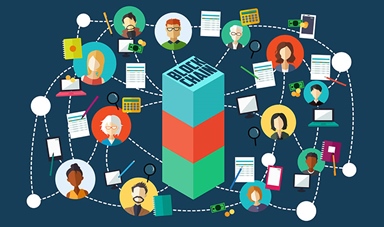Loading component...
At a glance
In lay terms, blockchain technology comprises a decentralised distributed ledger or network of “blocks”, units of data (such as cryptocurrency transactions, records of information) that are visible and verifiable in real-time by all participants in that network.
The information contained in each new block is unalterable as it is connected to preexisting blocks via timestamping credentials, thus protecting all data in the network from revisions or tampering.
Due to its inherently superior protection against fraud and its ability to remove the “middleman” in many operational processes, blockchain is not only capable of changing accounting and auditing functions significantly, but it’s also changing the way people do business.
Recognising the obvious disruptive potential of blockchain applications, some savvy businesses are starting to harness this ever-evolving technology to achieve innovative – and sometimes spectacular – growth.
Here are four start-ups that use blockchain to operate their businesses.
1. Power Ledger
For Aussie blockchain startup Power Ledger, utilising blockchain technology has led to huge growth, with the company recently earning the opportunity to pitch to Sir Richard Branson after getting into the finals of the Extreme Tech Challenge pitch competition in Las Vegas.
Devised by researcher Dr Jemma Green, Power Ledger is a peer-to-peer (P2P) network that allows private and commercial users to buy and sell their excess renewable energy in real-time, underpinned by the company’s POWR cryptocurrency.
Power Ledger hopes to lead the charge in demonstrating the innovativeness of blockchain – the distributed nature of trading via this method removes the need for a third-party supplier to get involved in transactions and it further encourages an environmentally-responsible and sustainable means of sharing solar power.
2. DHealtNetwork
One of the most promising features of blockchain technology is the personalised control that a decentralised system of record-keeping can offer users, while ensuring data integrity and security is preserved.
When the Queensland-based startup DHealthNetwork launched four years ago, founder Ivan Jasenovic was diligently building custom decentralised storage systems to enhance the sharing of health records, with the aim of facilitating better communication between patients and doctors and to minimise the risks of misdiagnosis.
The company made a transition to using blockchain technology only recently after recognising its unlimited potential.
“As soon as I started to hear about developments in blockchain… we put aside the last four years of work because I realised this is where we needed to be,” Jasenovic said earlier this year.
“Blockchain technology inherently offers authenticated, immutable information. We were going to build out the whole infrastructure to offer this ourselves.”
With other companies and institutions recognising an increased demand for greater individual management of medical data, blockchain applications have revolutionary implications for patient autonomy and the global healthcare industry.
3. Farmatrust
Expanding on the medical applications of blockchain, the UK startup FarmaTrust is an international tracking system that aims to stamp out the widespread dissemination of counterfeit pharmaceutical drugs marketed online.
The FarmaTrust system is said to be “tech and regulatory neutral”. This means private and commercial users can utilise the software to interface with their existing ERP systems, creating records that can efficiently monitor pharmaceutical supply chains and thus enforce legitimate quality assurance practices.
With its potential to save lives in both developing and industrialised societies, FarmaTrust is an example of how blockchain technology can be utilised to reduce black market corruption and stop counterfeit medication.
4. Change
Capitalising on the demand for more streamlined online transactions, this Singapore-based fintech is positioning itself as a one-stop “digital wallet” and has the potential to become the “PayPal of cryptocurrency”.
Change is developing a “multi-asset blockchain wallet” that not only supports the trade of a large (and constantly expanding) range of digital currencies but the system is moving towards also allowing users to make payments for goods and services using traditional currency.
The company’s community-led financial services platform supports a range of everyday transactions, and with plans to develop a banking card and mobile app on the back of a recent $17.5 million token sale, Change has the potential to make it possible for users to control all of their finances with a few taps on their smartphone.

